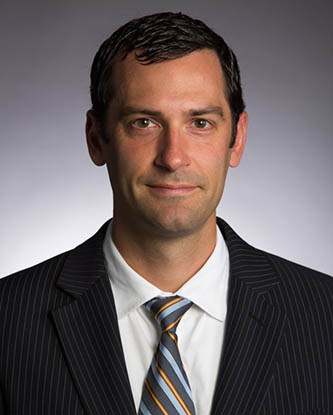
Calo is a Founding Full Professor at Hamad bin Khalifa University College of Law in Doha, an initiative of the Qatar Foundation and North Western University to offer the first Juris Doctor degree in the Middle East. He is also Research Scholar in Law and Religion at Valparaiso University and Visiting Professor at the Open University, UK. He has previously taught at Valparaiso University Law School, Notre Dame Law School, DePaul University College of Law, and Hangdong International Law School in South Korea. He was visiting fellow at the Brookings Institution, the Pew Forum on Religion and Public Life, and the Institute for Humane Studies. Calo practiced law with Buckley Sandler LLP in Washington, DC. He holds a Bachelor of Arts and a Master of Arts in history from The Johns Hopkins University, a Juris Doctor from the University of Virginia School of Law, and a doctorate in history from the University of Pennsylvania. He is editor of the Agape, Justice, and Law (Cambridge University Press).

After federal government and small business experience, Ms. Eubank joined LDS Charities in 1998. She established 17 international employment offices helping women qualify for jobs or start small businesses. For five years, she directed the humanitarian wheelchair donation program expanding both the number and quality of donations. In 2008 she became regional director of the LDS Charities for the Middle East, overseeing humanitarian work in 11 countries. In 2011, Ms. Eubank was appointed the director of LDS Charities’ worldwide operations, a position she currently holds. In addition, in 2017, she was asked to serve in the general presidency of the LDS Church’s women’s organization called Relief Society. In this capacity, she helps provide leadership and resource for 7.2 million members in 162 countries.
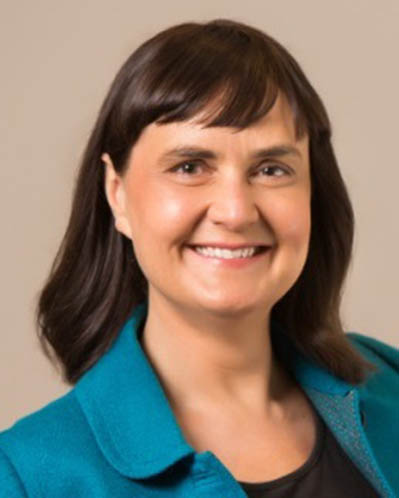
Professor Carolyn Evans has degrees in Arts and Law from Melbourne University and a doctorate from Oxford University where she studied as a Rhodes Scholar and where she held a stipendiary lectureship for two years before returning to Melbourne in 2000. She worked for a period as a lawyer at Blake Dawson Waldron after graduating from Melbourne. In 2010, Carolyn was awarded a Fulbright Senior Scholarship to allow her to travel as a Visiting Fellow at American and Emory Universities to examine questions of comparative religious freedom. Carolyn is the author of Religious Freedom under the European Court of Human Rights (OUP 2001) and co-author of Australian Bills of Rights: The Law of the Victorian Charter and the ACT Human Rights Act (LexisNexis 2008). She is co-editor of Religion and International Law (1999, Kluwer); Mixed Blessings: Laws, Religions and Women's Rights in the Asia-Pacific Region (2006 Martinus Nijhoff) and Law and Religion in Historical and Theoretical Perspective (CUP 2008). She is an internationally recognised expert on religious freedom and the relationship between law and religion and has spoken on these topics in the United States, United Kingdom, Russia, China, Greece, Vietnam, India, Hong Kong, Switzerland, Malaysia, Nepal and Australia.
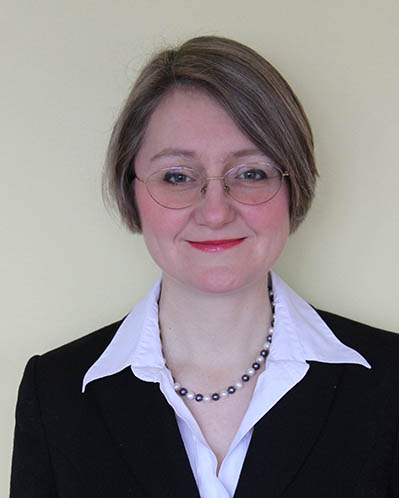
Jessica Giles, Barrister (Inner Temple); Law Lecturer, The Open University; SFHEA; Associate Editor, Oxford Journal of Law and Religion; Director of PILARS (Project on Interdisciplinary Law and Religion Studies at the Open University).
Jessica is a law lecturer at the Open University Law School. She runs a Masters Degree course on Business Law, Social Responsibility and Human Rights and is a team member of a course on research methodology and an undergraduate course on public and criminal law. Her research is in the field of religious freedom and its place within constitutional settlements. In particular she is interested in the synthesis between law & religion studies and philosophical theology. She is on the advisory council of the Kirby Laing Institute for Christian Ethics, Cambridge.
Jessica acts as a scholarship mentor and carries out scholarship research in the field of online learning, skills training and employability, having led a team to win the Stan Marsh prize for best paper at the ALT Conference 2016.
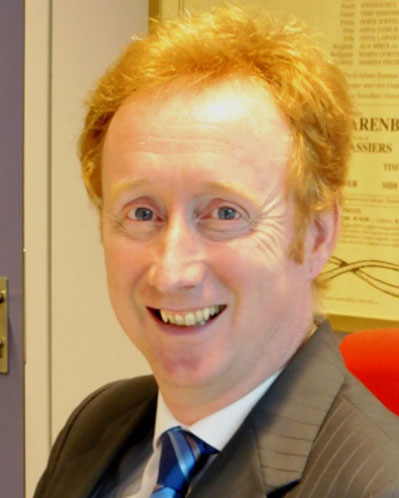
Fearghas O’Beara received a Bachelor’s degree in Education from Trinity College Dublin in 1988, studied American literature and Creative writing at the City College of San Francisco from 1994-1995, and received a Master’s degree in European Politics and Economics from the University College Dublin in 1996. Fearghas currently works as the Advisor to the Vice President of the European Parliament, coordinating the Parliament’s dialogue with religious and philosophical organisations. He has previously worked in various roles in the European Parliament including as adviser to the Director General of the European Parliamentary Research Service, and policy adviser to the President (Speaker) of the European Parliament, Jerzy Buzek and Hans-Gert Poettering. Before his time at the Parliament, Fearghas worked as a European Affairs journalist and EU Affairs Consultant.

Professor Quinlan is Dean of the School of Law, Sydney at The University of Notre Dame Australia. Prior to taking up this role in 2013, Professor Quinlan had a distinguished career of over 23 years at the commercial law firm Allens where he was a partner for more than 14 years. Professor Quinlan practised in commercial litigation specialising in insolvency and insurance law. Professor Quinlan was a long-time member of Allens’ Pro Bono Committee. His pro bono practice centred around refugee and migration appeals but also involved assisting charities and individuals in need. Professor Quinlan is the Junior Vice President of the St Thomas More Society, a contributing member of the Wilberforce Foundation and of Lawyers for the Preservation of the Meaning of Marriage. Professor Quinlan has a deep interest in the relationship between law and morality and law and religion. Professor Quinlan is married to Kate and they have four children Edmund, Brigid, Sinead and Liam.
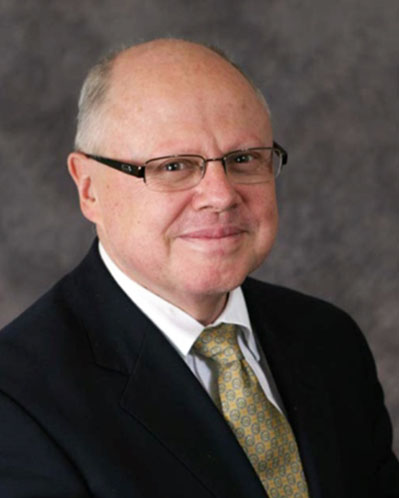
Neville Rochow SC is a Senior Fellow with the International Center for Law and Religion Studies (‘the Center’) and works with Professor Paul Babie on the Law and Religion Project of the Research Unit for the Study of Society, Ethics and Law, The University of Adelaide. He holds adjunct professorships at the law schools of Notre Dame Australia and the University of Adelaide. His research interests include jurisprudence, human rights, and freedom of religion or belief. In his practice as a Silk from Howard Zelling Chambers, he had a national practice in corporate, commercial, competition, and constitutional law. He has appeared in the High Court of Australia, the Federal Court, the Supreme Court of various States and other federal, territorial, and state jurisdictions. From 2015 to 2017, he and his wife, Penny, served as Government Relations Representative at the European Union Office LDS Church in Brussels, Belgium, acting as advisers and advocates in the EU and the UK on freedoms of religion, belief, conscience, and expression. They worked closely with other NGOs in Brussels on policy and reform in relation to issues arising under the European Covenant on Human Rights and in the dialogue under Article 17 of the Lisbon Treaty. During his time in Europe, he spoke in the European Court of Human Rights in Strasbourg, the Law Commission in London, the House of Lords at Westminster, and the EU Parliament in Brussels. At the Center, with his background as a barrister in Australia, and his work with Penny in the EU and UK, Neville’s work is focused on freedom of religion or belief issues in the Pacific, Asia, and Western Europe. He is currently completing a PhD by publication at Adelaide Law School, the dissertation for which will collate and provide a narrative on works he has published in recent years on freedom of religion or belief in Australia and the desirability of the domestic incorporation of international human rights norms.
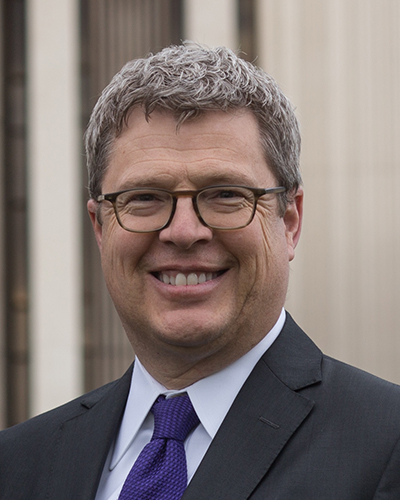
Brett Scharffs is the Rex E. Lee Chair and Professor of Law at Brigham Young University’s J. Reuben Clark Law School, and Director of the International Center for Law and Religion Studies. His teaching and scholarly interests include law and religion, legal reasoning and rhetoric, philosophy of law, and legislation and regulation. Professor Scharffs is a graduate of Georgetown University, where he received a BSBA in international business and an MA in philosophy. He was a Rhodes Scholar at Oxford University, where he earned a BPhil in philosophy. He received his JD from Yale Law School, where he was Senior Editor of the Yale Law Journal. In his eighteen-year academic career, Professor Scharffs has written more than 100 articles and book chapters, and has made over 300 scholarly presentations in 30 countries. His field-creating casebook, LAW AND RELIGION: NATIONAL, INTERNATIONAL AND COMPARATIVE PERSPECTIVES, published by Aspen Press / Wolters Kluer (co-authored with his BYU Law School colleague, W. Cole Durham, Jr.), has been translated into Chinese and Vietnamese, and translations are underway into Arabic, Burmese, Indonesian and Turkish. Second editions of the English and Chinese versions are scheduled in 2016. He has served as Chair of the Law and Religion Section of the Association of American Law Schools, and is immediate past Chair of the Law and Interpretation Section of the AALS. He is on the editorial board of the Oxford Journal of Law and Religion and the Advisory Board of the Research Unit for the Study of Society, Law and Religion at the University of Adelaide.

Dr Ping Xiong is Senior Lecturer in law in the School of Law of the University of South Australia. Dr Xiong’s research interest is in the field of international economic law with a focus on intellectual property policy in international trade, and its implications for free trade agreements and for international human rights protection. She also maintains research interest in the comparative approach to Chinese trade secrets law and in researching the legal issues arising from investments by Chinese State-owned Enterprises overseas. In addition, Dr Xiong has interests in researching freedom of religion in China. She has published articles in those areas of law. Dr Xiong holds a PhD degree in law and a LLM degree. Prior to her joining the UniSA Law School, Dr Xiong held academic position at the Victoria University of Wellington.

Dr Brian J. Adams is the Director of the Centre for Interfaith & Cultural Dialogue at Griffith University. As a former Rotary Peace Fellow, Brian is primarily focused on promoting respect and understanding across cultural, religious and organisational boundaries. Brian's 20+ years of work in Africa, Europe, North America and the Asia-Pacific bring a compelling international perspective to the ICD. His background in mediation, conflict management and dialogue facilitation strengthen the Centre's ability to address some of the great challenges facing the world today, while his fluency in English, French and Swahili allow him to expand the work of the ICD to marginalised groups in Australia and to troubled regions across the globe. Brian is also the author of the CURe Program for Productive Diversity. This program helps create the mindset, develop the skills and establish an environment for people to value the traditions and perspectives of other and to contribute their own. It lays the foundation on which productive diversity is built.
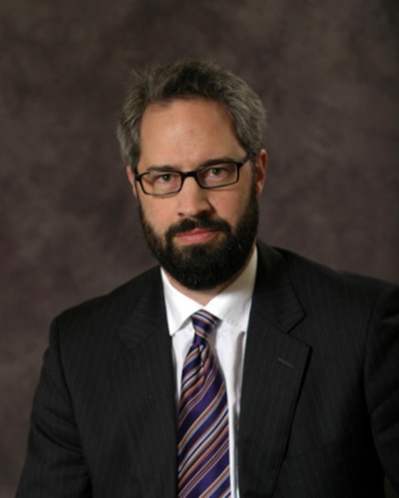
Paul Babie holds a personal chair of law at the Adelaide Law School of the University of Adelaide. He is currently Associate Dean (International) of the Faculty of the Professions at the Adelaide Law School and Director of the Law and Religion Project of the Research Unit for the Study of Society, Ethics, and Law. He holds a BA in sociology from the University of Calgary, a BThSt from Flinders University, an LLB from the University of Alberta, an LLM from the University of Melbourne, and a DPhil in law from the University of Oxford. He is a barrister and solicitor (inactive) of the Court of Queen’s Bench of Alberta (Canada), and an associate member of the Law Society of South Australia. His primary research interests include private law theory, property theory, and law and religion. He has published and spoken extensively in these fields. He teaches property law, property theory, law and religion, and Roman law.
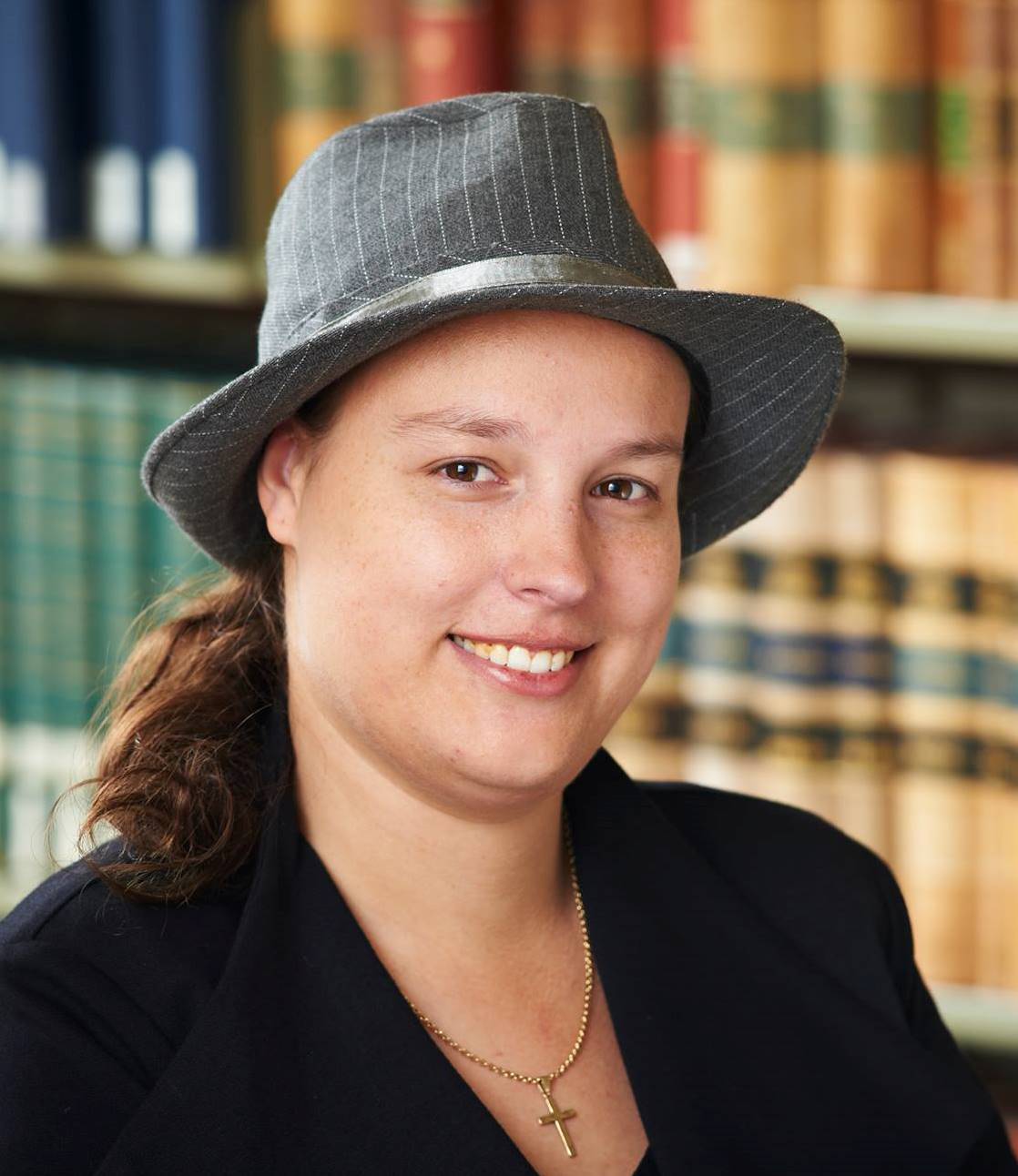
Renae Graduated from Murdoch University with a Bachelor’s degree in law with honours and Bachelor’s degree in economics. She subsequently completed her PhD at the University of Western Australia in 2014. Her thesis explored the development of the relationship between the state and religion in Australia from 1788 to modern Australia. She joined UWA as a lecture in 2013, having tutored at the university of a number of years. Renae researches in the area of law and religion. Her particular areas of interest are religion and education, freedom of religion and state funding of religion. Her current research focuses on the engagement of Muslim’s in the common law legal system. This includes the issue of the wearing of Islamic face veils (burqa and niqab) by witnesses and other participants in the court process. Renae’s Ph.D thesis was titled ‘The changing relationship between the State and religion in Australia: 1788 to modern Australia. What has changed? What is the same? And what does that tell us?’. It covered State restrictions on religious practice, religion and education and State funding of religion.
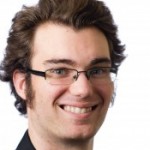
Dr Alex Deagon is Lecturer in the Faculty of Law, Queensland University of Technology, Australia, and a committed Christian. His research focuses on jurisprudence, law and theology, and freedom of religion. His PhD, which argued for a theological foundation of law through John Milbank, was awarded without alteration and received the Chancellor’s Medal. The PhD was subsequently published as a book in 2017: From Violence to Peace: Theology, Law and Community with Hart Publishing. Alex has also been published in Law, Culture and the Humanities, the Griffith Law Review and the International Journal of Philosophy and Theology, with articles recently accepted for publication in the Harvard Journal of Law and Public Policy and the Federal Law Review. Alex was extensively cited in the recent Interim Report on the Legal Foundations of Religious Freedom in Australia by the Commonwealth Parliament Human Rights Sub-Committee. He teaches in Theories of Law, Constitutional Law, and Evidence.
Joshua Forrester graduated with first class honours in law from the University of Western Australia. Before commencing his PhD in law at Murdoch University, he practiced in commercial litigation. Joshua is the lead author of No Offence Intended: Why 18C is Wrong. This book argues that s 18C of the Racial Discrimination Act 1975 (Cth) – the Commonwealth’s “racial hate speech law” – is unconstitutional. The book has been reviewed favourably in The Australian and Quadrant, and was listed as one of The Spectator’s “Best Books of 2016”. Joshua’s other publications include articles in the Western Australian Jurist, The Conversation, Policy, and Quadrant. He has also appeared before Commonwealth Parliamentary Inquiries into freedom of speech in Australia and the human right to freedom of information and belief.
The Right Reverend Robert Forsyth was the Anglican Bishop of South Sydney, a region of the Anglican Diocese of Sydney, from 2000 to 2015. Before this he was the rector of St. Barnabas, Broadway and chaplain to the University of Sydney. Robert gave the 2001 Acton Lecture Dangerous Protections: How some ways of protecting the freedom of religion may actually diminish religious freedom and has been awarded the Alan MacGregor Fellowship at Consilium in 2010. Robert has been extensively involved in the areas of religious freedom and public policy.
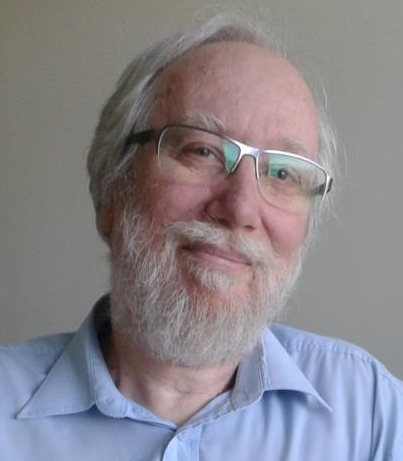
Neil Foster received a Bachelor of Laws/Arts (BA, LLB) from the University of NSW in 1981, a Bachelor of Theology (BTh) and associated DipATh through Moore Theological College in 1990, and a Master of Laws (LLM), based on a thesis entitled “Liability of Company Officers re Workplace Health and Safety” from the University of Newcastle in 2004. Neil has been an academic in the Newcastle Law School at the University of Newcastle since July 1995. His primary research interests include Torts (civil liability for wrongs), Law and Religion, and Occupational (Workplace) Health and Safety Law. He has also published in the areas of Property and Intellectual Property. In 2012 Associate Professor Foster published a book which provides an introduction to the Australian Workplace Health and Safety (WHS) law for use by those who need to know how to manage safety in a workplace following the development of a new harmonised law, and this has since come out in a 2nd edition in 2016. He is a co-author of textbooks in the areas of Torts and Property Law. He comments on Law and Religion issues at https://lawandreligionaustralia.blog .
Mark Fowler is a Director of Neumann and Turnour Lawyers and an Adjunct Associate Professor of Notre Dame Law School. Mark supervises the property and commercial sections of Neumann and Turnour Lawyers. His areas of legal practice include property, with a particular focus on the affordable, community and social housing sectors, commercial law, and not-for-profit and charity law, including the law applying to international aid organisations. Following several years working with indigenous communities in Malaysia, the Northern Territory and Queensland, Mark joined the firm to focus on advising commercial and business enterprises and not for profits. In addition to his responsibilities at the firm, Mark is currently undertaking a PhD part-time at the University of Queensland, focusing on religious freedom and tax.
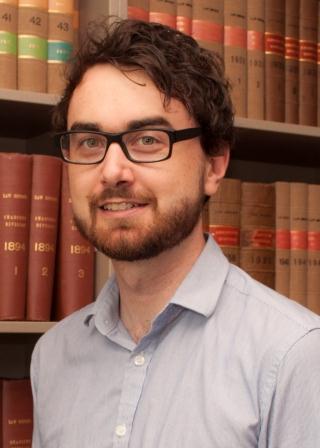
Joel Harrison's scholarship focuses on law and religion, human rights, and constitutional law. He received his first law degree from the University of Auckland, serving on the editorial board of the Auckland U. L. Review and graduating as a senior scholar in law. After law school, he clerked for Sir Grant Hammond of the Court of Appeal of New Zealand and was a Teaching Fellow at Victoria University, Wellington. Admitted as a Barrister and Solicitor of the High Court of New Zealand in 2007. In 2008 he worked as a Legal and Policy Advisor at the New Zealand Law Commission, focusing on sentencing reform. Awarded a Woolf Fisher scholarship (NZ) to read for a doctorate in law at the University of Oxford, Magdalen College. While at Oxford, Joel was a Graduate Teaching Assistant in Public Law and he taught Constitutional Law at Lady Margaret Hall and Harris Manchester College. From 2012 till 2014, he was an Associate-in-Law (Lecturer and Post-Doctoral Researcher) at Columbia Law School.
The Reverend Peter Kurti is a Senior Research Fellow co-ordinating the Religion and Civil Society program. The program examines the implications of a liberal approach to religion in civil society and investigates the capacity of that society to maintain freedom for expression of religious values. It does not discuss issues of discipline, dogma or organization. Peter is an ordained minister in the Anglican Church and has worked in England and Australia. His experience includes ministry with inner-city and suburban congregations as well as in the university sector where he also taught. Before joining the CIS Peter had been Rector of Saint James’, King Street in Sydney for eight years. He trained for the ministry in England and the United States, and has degrees in law, theology, and philosophy. He is also an Adjunct Research Fellow at the Australian Centre for Christianity and Culture, and a Fellow of the Royal Society of Arts.
Patrick Parkinson is a professor of law at the University of Sydney and a specialist in family law, child protection and the law of equity and trusts. He is also a founding member of Freedom for Faith. He was President of the International Society of Family Law from 2011-2014. His books include Australian Family Law in Context (6th ed, 2015), Tradition and Change in Australian Law (5th ed, 2013), Family Law and the Indissolubility of Parenthood (2011), The Voice of a Child in Family Law Disputes (with Judy Cashmore, 2008), Child Sexual Abuse and the Churches (2nd ed, 2003) and Principles of Equity (editor, 2nd ed., 2003). Professor Parkinson served from 2004-2007 as Chairperson of the Family Law Council, an advisory body to the federal Attorney- General, and also chaired a review of the Child Support Scheme in 2004-05 which led to the enactment of major changes to the Child Support Scheme. Prof. Parkinson is also well-known for his community work concerning child protection. He has been a member of the NSW Child Protection Council, and was Chairperson of a major review of the state law concerning child protection which led to the enactment of the Children and Young Persons (Care and Protection) Act 1998. He also works with churches on child protection issues.
Dr Jeremy Patrick is a Lecturer at the University of Southern Queensland School of Law and Justice, where he serves as Chair of the Law and Religion Research Group. He has law degrees from the University of Nebraska (J.D.), University of Toronto (LL.M.), and York University (Ph.D.). He specializes in law and religion and constitutional law, and has published in American, Canadian, and Australian journals. Notable publications in the field include ‘Religion, Chaplaincy, and the National School Chaplaincy and Student Welfare Program’ (2014) 33 University of Queensland Law Journal 187; ‘Not Dead, Just Sleeping: Canada’s Prohibition on Blasphemous Libel as a Case Study in Obsolete Legislation’ (2008) 41 University of British Columbia Law Review 193; and ‘The Religion Provisions of the Nebraska Constitution’ (2004) 19 Journal of Law and Religion 331. His book manuscript Faith or Fraud? Fortune-telling, Spiritual Counselling, and the Law is under contract to the University of British Columbia Press.
Archbishop Porteous has family links to Tasmania. His forebears arrived in Tasmanian from England in 1853. His great grandfather and great grandmother were both born in Hobart, within one kilometre of St Mary’s Cathedral. His grandfather was named Manful Charles Hobart Granger. Archbishop Porteous completed his primary education in Melbourne, Singapore and Parramatta before he undertook secondary schooling with the De La Salle Brothers at Oakhill College, Castle Hill. Archbishop Porteous entered St Columba’s Seminary, Springwood, in 1968, then continued studies for the priesthood at St Patrick’s College, Manly, from 1971. He was ordained a priest for the Archdiocese of Sydney on September 7, 1974.
Professor Pauline Ridge, Australian National University, is a private law scholar whose research encompasses equity, restitution, contract law, and law and religion. Her law and religion research focuses upon the legal regulation of religious financing from a doctrinal and historical perspective. She is particularly interested in the reform of religious charity law. She is the co-author, with Joachim Dietrich, of Accessories in Private Law (Cambridge University Press, 2015) and co-editor of Fault Lines in Equity (Hart Publishing, 2012).
Warwick T. (Rick) Sarre is adjunct Professor of Law and Criminal Justice at the University of South Australia. Professor Sarre teaches Religion and Law, Sports Law, Business Law and Criminology in the School of Law at UniSA. He is immediate past President of the Australian and New Zealand Society of Criminology, and serves on the Board of Directors of the International Police Executive Symposium. Professor Sarre has a Doctorate of Legal Science from the University of Canberra, a Master of Arts (Criminology) from the University of Toronto (Canada), a Bachelor of Laws from the University of Adelaide, and an Honorary Doctorate from Umeå University, Sweden. Professor Sarre has taught in the Business Division at Graceland University (Iowa, USA), in the Department of Law, Umeå University (Sweden), and with UniSA business programs twinned with Hong Kong Baptist University (Hong Kong SAR). Professor Sarre won a Carrick citation from the Australian Learning and Teaching Council in 2008. His research awards include the Research Excellence Award from the Division of Business (2006), joint winner of the Anne Hawke Prize for best article published in the Division of Business and Enterprise (UniSA, 2000), and winner of the Elbert A Smith Award for best article from the Herald Publishing House (USA) (2000). Professor Sarre was the Chair of Academic Board at the University of South Australia 2011-2016.
Paul Taylor spent 20 years in private practice in the UK, at the Criminal Bar, and as a Solicitor specialising in competition law and intellectual property in prestigious firms (for more than a decade at partner level). After emigrating to Australia, he has spent much of his time working in areas of private or public international law. He represented Australia at The Hague Conference on Private International Law, at OECD Competition Committee meetings, and at free trade agreement negotiations. He has held Visiting Fellowships at Wolfson College, Cambridge and the Australian National University, Centre for Public and Public Law. He authored Freedom of Religion: UN and European Human Rights Law and Practice published by Cambridge University Press, among many book and journal publications. His current research interest is the International Covenant on Civil and Political Rights. His first exposure to human rights was as an advocate, trial observer and fact-finder during the Cold War era.
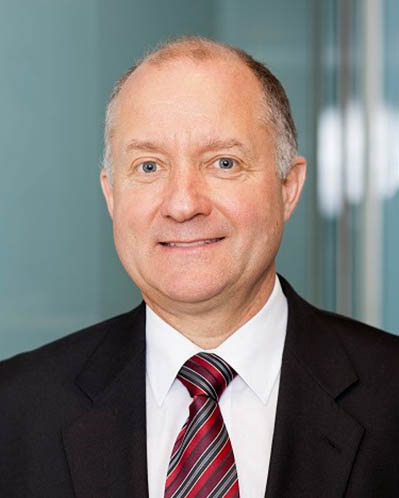
Dr Thompson has enjoyed a wide and varied career in the law with experience in property, commercial, international, constitutional, criminal and human rights law. He worked for 11 years in Auckland in commercial and property law including 6 years as a partner with Fortune Manning and was then appointed as International Legal Counsel for The Church of Jesus Christ of Latter-day Saints. In that role, Dr Thompson supervised that Church's legal work through the Pacific Area (for 18 years) and then through the African continent for a further 2 years. Since returning to Australia in 2011 he has been appointed as Associate Professor and Associate Dean at The University of Notre Dame Australia's Sydney School of Law where he teaches Constitutional Law, Evidence, and Law and Religion but he retains an interest in legal practice through his continuing part time roles as Special Counsel at Taylor and Whitty, a regional firm with offices in south-western NSW and northern Victoria and as a Consultant at Stevens Vuaran, a boutique firm in downtown Sydney. In 2010 he published a book entitled Religious Confession Privilege and the Common Law. He has also published on Insolvency, Vicarious Liability in Tort, Foreign Corrupt Practices and Freedom of Religion.
Damian Wyld has been CEO of Marriage Alliance since 2013 and has been prominent in South Australian State and local government politics. Mr Wyld graduated from the University of Adelaide with a Bachelor of Arts (Hons) (joint honours in politics and history), after which he spent several years as a state and federal political staffer. Happily married to Grace, Mr Wyld has a keen interest in current affairs and also works in the public relations field.
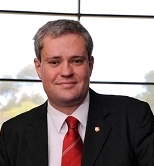
Dr Augusto Zimmermann (LLB, LLM, PhD (Monash)) is Professor at Sheridan College in Perth, Western Australia. He is also Adjunct Professor of Law at the University of Notre Dame Australia, Sydney campus. In addition, Professor Zimmermann is a former Law Reform Commissioner with the Law Reform Commission of Western Australian and a former Associate Dean (Research) and Postgraduate Research Director at Murdoch University's School of Law. Professor Zimmermann is also the founder and President of the Western Australian Legal Theory Association (WALTA), a former Vice-President of the Australian Society of Legal Philosophy (ASLP), a Fellow at the International Academy for the Study of the Jurisprudence of the Family, and Editor-in-Chief of the Western Australian Jurist law journal. A prolific writer and the author of numerous articles and academic books, Professor Zimmermann was awarded the 2012 Vice Chancellor's Award for Excellence in Research, and two School Dean's Research Awards, in 2010 and 2011. He has also received the 2013 Law Lecturer of the Year Award from the Murdoch Student Law Society (MSLS), in recognition of the outstanding level of teaching, service and personal contribution he provided to the students of Murdoch Law School. Finally, Professor Zimmermann has been included, together with only twelve other Australian academics and policy experts, in 'Policy Experts' – the Heritage Foundation's directory for locating knowledgeable authorities and leading policy institutes actively involved in a broad range of public policy issues, both in the United States and worldwide.
Graham Leung is presently the Secretary for Justice & Border Control in Nauru. He previously ran a law firm in the Fijian capital, Suva, until he retired from private practice. He is a former Director of the Centre of Independence of Judges and Lawyers (CIJL) which was a part of the International Commission of Jurists, based in Geneva, Switzerland. He has a Master of Laws degree from the University of California and was called to the Bar in 1981. He spent over fifteen years in the Fiji Public Service. He has acted as Deputy Solicitor General and was one time Fiji’s Deputy Ambassador to the United Nations based in New York. He has also prosecuted in the Director of Public Prosecutions’ Office. Graham has more than 34 years’ experience in public and commercial law. Graham is a former Vice President of Law Asia and council member of the Commonwealth Lawyers Association. He is a former President of the Fiji Law Society. He is a Fiji citizen.
Ming runs and manages his own legal practice (Aumua Law Firm) in Samoa. He was born and educated in Samoa before moving to New Zealand in 1992 to attend the University of Waikato where he completed his law degree with honours. He returned to Samoa in 1996 and worked at the Attorney-General’s Office and briefly for the Ministry of Agriculture & Fisheries. In 2001 he went into private practice by joining Leung Wai Law Firm. He was the Attorney-General of Samoa from December 2006 to January 2016. He is a deacon and is in the Board of Trustees of Apia Harvest Centre Church (AOG). He chairs the Governance (Education) Board of the Marist Brothers’ schools in Samoa. He also holds positions in various organisations including being the President of Marist Brothers Old Pupils Association and Moamoa Roosters Sports (Rugby & Soccer) Club; and Deputy Chair of Marist Boxing. He holds matai titles “Tuatagaloa” from the village of Poutasi and “Aumua” from the village of Sapunaoa. He is married to Fiti (business woman and also a lawyer) and together have four sons.

Eugene Tan is Associate Professor of Law at Singapore Management University School of Law. An advocate and solicitor of the Supreme Court of Singapore, he holds degrees from the National University of Singapore Faculty of Law, the London School of Economics, and Stanford University. Eugene teaches and researches in the area of constitutional and administrative law, the regulation of ethnic conflict, and the government and politics of Singapore. He has published in these areas in various edited volumes and in peer-reviewed journals including Australian Journal of Asian Law, The China Quarterly, Citizenship Studies, Ethnic and Racial Studies, Ethnopolitics, Israel Law Review, Journal of Church and State, Law and Policy, Singapore Year Book of International Law, Terrorism and Political Violence, and Yonsei Law Journal. Eugene regularly writes for and is quoted in the Singapore press, particularly on matters related to domestic politics. Tan served as a Nominated Member of Parliament between 14 February 2012 and 13 August 2014.
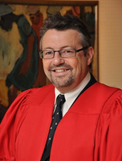
Professor Benson, JD, PhD, is called to Bars of BC and Ontario, Canada. He is currently Professor Extraordinary, University of the Free State, Bloemfontein; Visiting Professor (Comparative Constitutional Law) Faculty of Law, University of Western Ontario, South African Institute for Advanced Constitutional, Human Rights, Public and International Law; Senior Research Fellow, Chester Ronning Centre for the Study of Religion and Public Life, University of Alberta; Member of the Board and Executive Committee of the Global Centre for Pluralism, Ottawa, Canada. Retained by the Federal Government of Canada for Policy Research Initiative on "Religion and Public Policy" (Jan 2008); one of the drafters of the South African Charter of Religious Rights and Freedoms (2010); Special Rapporteur on Law and Religion in Canada and South Africa to the Pontifical Academy of the Social Sciences, Vatican City (2012); many academic articles and book chapters; work cited by both the Supreme Court of Canada and the Constitutional Court of South Africa. Author, Living Together with Disagreement: Pluralism, the Secular and the Fair Treatment of Beliefs by Law. PhD Thesis, "Associational Framework for the Reconciliation of Competing Rights Claims Involving the Freedom of Religion" (2013).
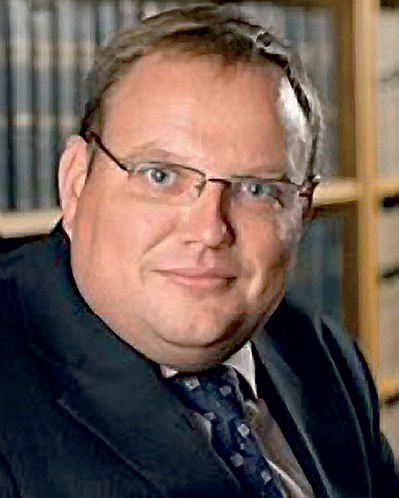
Professor Mark Hill QC is an associate Professor at Cardiff University; the University of Pretoria; King's College London; and Notre Dame University, Sydney. He is Chairman of the Ecclesiastical Law Society, Vice-President of the International Consortium for Law and Religion Studies, a founder member of the African Consortium for Law and Religion Studies, and a former President of the European Consortium for Church and State Research. He holds judicial appointments in the British criminal courts and the Immigration and Asylum Appeals Tribunal, as well as in the church courts as Chancellor of the Dioceses of Chichester, Leeds and Europe. He has practised at the Bar from chambers in the Inner Temple, London since 1987 and has appeared in many leading cases in the United Kingdom Supreme Court and the European Court of Human Rights. His recent publications include the fourth edition of the practitioner text Ecclesiastical Law (2018), Great Christian Jurists in English History (2017), The Confluence of Law and Religion (2016), and Magna Carta, Religion and the Rule of Law (2015). He is currently working on Christianity and Criminal Law: An Introduction and The Routledge Handbook of Freedom of Religion or Belief. Mark has been selected as the Robin Sharwood Visiting Lecturer in Canon Law for 2019, and will give a public lecture at Trinity College, Melbourne in March 2019.
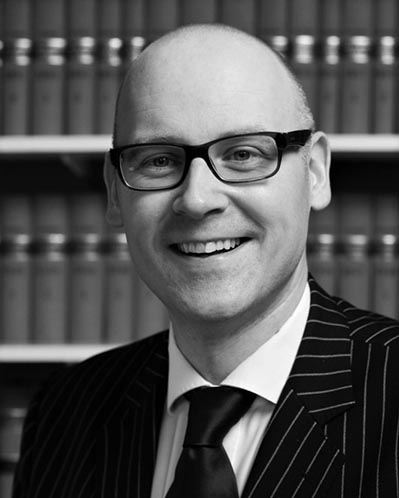
Simon is Head of Public Policy for the Evangelical Alliance. Prior to joining the Alliance, he was in full time practice as a barrister with specialisms in personal injury and employment law. Simon holds a specialist LL.M in employment law and is focused upon issues of religious liberty. Before he was called to the Bar, Simon worked as a teacher in secondary education (11-18). Moreover, he is also an experienced law lecturer having tutored both undergraduate and postgraduate students. He enjoys most sports and walking in the country.
